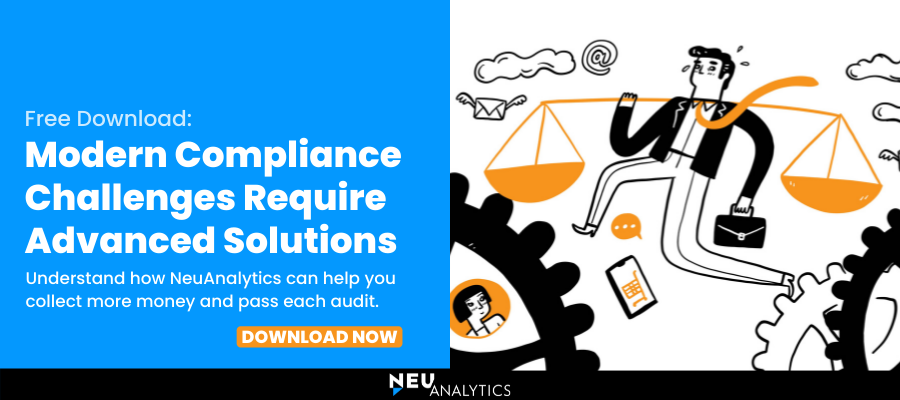Should You Sue to Recover a Defaulted Credit Account?
Collections litigation is fairly straightforward: a creditor and a customer agree to a credit contract, which is breached by the customer’s non-payment. Credit contracts are generally structured so that the creditor will not breach the contract, which means the customer typically has no counterclaims against the creditor. If the consumer defaults on the credit contract, this leaves a pretty clear path for the creditor to bring a lawsuit against the consumer.
There are many law firms ready and available to serve in this area, and although any lawyer can do these services, typically it’s best practice to engage a lawyer who regularly handles a high volume of debt collection cases, as they tend to be efficient practitioners. If you’re just starting to build a law firm network, the National Creditors Bar Association may be a good place to start. This is setting aside the usual collections practices, which of course provide a valuable service and, at least initially, tend to offer a more cost-effective solution.
What Evidence is Required for a Lawsuit?
There are a few different ways to approach a collections lawsuit and different courts have different rules, but suing on an account begins by providing all relevant documents to the law firm. These documents should include the credit contract that the customer accepted, the most recent statement, and an affidavit from an employee at the creditor that these documents are true and accurate business records. The creditor may have to produce a witness, as well, depending on how the case plays out.
At a minimum, the lawyer will need recent contact information and default balance to be able to draft and serve the initial pleadings. Generally, it is the creditor’s burden to prove the basic elements of the case, which means a creditor has an affirmative duty to get the law firm what it needs for the suit. For a large litigation program, this means the creditor must have a systemic solution for delivering a large number of documents to the law firms.
How Do I Manage Multiple Law Firms at Once?
Content should also flow from the law firm to the creditor as well. The attorney will take the creditor’s documents and incorporate them into the first salvo of the lawsuit: the pleading. In managing a network of collections attorneys, maintaining a centralized repository of all documents generated by the law firm should be a central consideration. This is primarily done if a creditor needs to move the case to a new firm, which could be the result of the lawyer going out of business, failing an audit, experiencing a data breach, or any number of circumstances.
It also gives the creditor’s audit team the ability to sample the attorney’s work product, as understanding the quality of a lawyer’s work is critical to effective law firm management. Generally, courts will have firm deadlines and consider it the creditor’s responsibility to have competent representation, which means creditors should be prepared to make quick moves, if necessary. Maintaining a copy of the pleading and all other case documents makes this process much easier. Using a data-driven process to exchange data with your firms takes this to the next level.
Managing your collections law firms by using an automated data exchange process allows you to not only route accounts quickly back and forth, it also allows you to separately monitor key events such as court dates, filing deadlines, and judgment expirations. This automated data stream can separately be used to monitor compliance with consumer protection laws and your expectations that these firms are handling every single account according to your work standards.
How Do I Ensure Meaningful Attorney Involvement Across a Network of Collections Lawyers?
A critical element of collection law firm management is creating and maintaining an effective control environment. Through its enforcement actions, The Consumer Financial Protection Bureau makes it clear again and again and again it expects large creditors must have the ability to verify that its attorney network is “meaningfully involved” with every case.
Currently, there is no single magic bullet that can assure meaningful attorney involvement in a case, but from the CFPB’s administrative enforcement actions we see that cursory reviews, for example, simple ministerial verification that the consumer’s name and balance in the pleading match the creditor’s information, do not meet this standard. The CFPB expects an attorney to perform some level of case evaluation before filing suit, meaning the attorney must form a professional opinion that the information provided by the creditor is a sufficient basis for a legal claim against the consumer.
What Are the Risks of Ineffective Controls for Collections Law Firms?
There is some significant downside for the creditor if the control environment isn’t effective, and perhaps more importantly, if there is no clear path for the attorney to escalate an issue with the creditor. There is no single one-size-fits-all auditing methodology for law firms, but most programs have common characteristics, a few of which are outlined here by Westlaw.
There was a significant case in NeuAnalytics’backyard of Jackson County, Missouri, a few years ago, where a debt buyer named the wrong person in a lawsuit over a credit card debt of roughly $1,000. The defendant hired a lawyer, who filed a counter-claim against the creditor for violating the Fair Debt Collections Practices Act, among other claims. For whatever reason (possibly a combination of these attorneys not being used to defending counter-claims, a high caseload volume, and poor coordination with the account owner), the debt buyer’s lawyers repeatedly failed to follow court procedures until the judge ruled they were not engaging in good faith, resulting in a sanction against the debt buyer that prevented them from presenting any evidence at trial.
Now rendered into sitting ducks, the debt buyer’s attorneys could only watch as opposing counsel put on the case of a big, bad multi-million dollar company preying on someone who didn’t even have a relationship with them. The jury quickly returned a verdict against the debt buyer to the tune of $83,000,000. Note that the debt buyer likely never actually paid that amount (the case settled during the appeal), but they certainly paid a hefty sum, in addition to the work effort required to defend the suit, file an appeal, etc., especially considering the debt buyer was pursuing recovery of less than $1,000.
How Do I Measure the Effectiveness of a Collections Attorney Network?
Finally, one key consideration in managing a network of collection law firms is monitoring performance. Large creditors must have some way to quickly and easily verify that their collections attorney network is working on every account, meeting deadlines, achieving results, not causing consumer harm, and perhaps most importantly, recovering what is owed on the account.
For a creditor with any significant default account volume, this can only be achieved through automation and systemic reporting – relying on spot checks or ad hoc touchpoints simply won’t provide any assurance that these matters are appropriately progressing. Perhaps most importantly, a creditor must have a mechanism to enforce a judgment once it’s rendered – in most situations, obtaining a judgment is relatively straightforward, but collecting on a judgment is a different matter – and the subject of a different blog post!
** This article is not intended to be legal advice for your specific situation and you should seek counsel before pursuing any particular course of action.
Are you looking for help with Collection Law Firm Management? NeuAnalytics has software solutions to help make the process more efficient, less expensive, and less stressful.
This blog was originally published on July 15, 2020, and has been updated with additional information for clarity.

